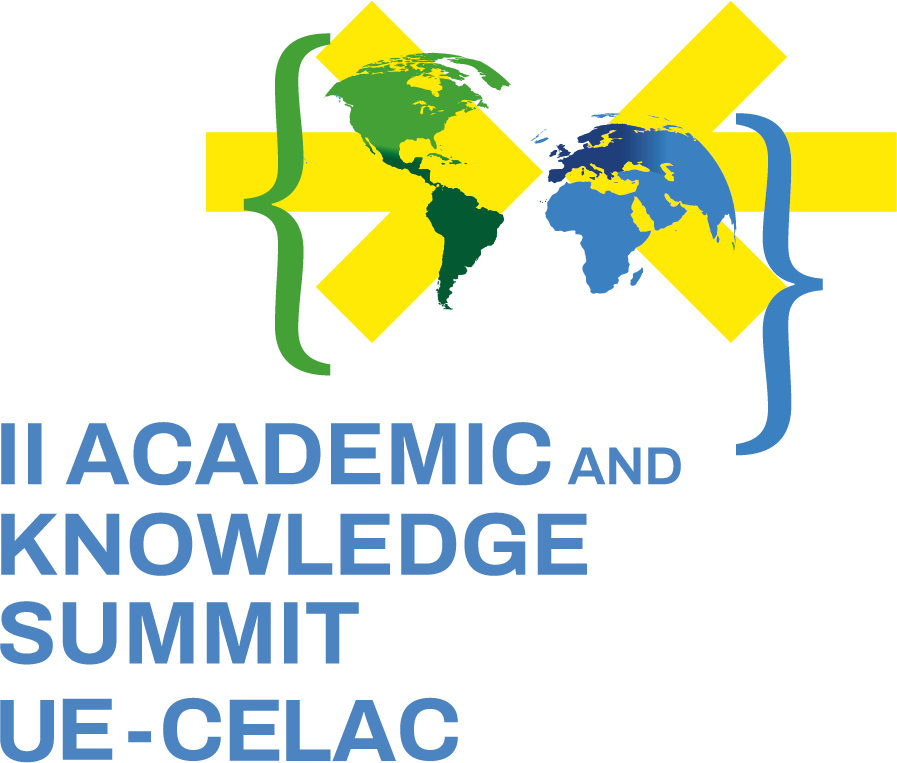PROGRAM
Thursday, may 4th
| 08:00 |
Transfer to Cidade da Cultura-Gaiás Museum |
| 08:00 – 09:00 | Accreditation |
| 09:00 – 09:45 | Opening ceremony |
| Institutional greetings | |
| 09:45 – 10:00 | Official photo |
| 10:00 – 10:45 | Inaugural lecture Presenter: Josep Maria Garrell. President elect of the European University Association – EUA Stefania Giannini. Assistant Director-General for Education, United Nations Educational, Scientific and Cultural Organization, UNESCO. |
| 10:45 – 11:15 | Coffee Break |
| 11:15 – 13:00 | Round table: Why is the EU important for LAC and LAC for the EU? Moderator: Adrián Bonilla. Executive Director of the EU-LAC Foundation. Speakers: Message from Maria Cristina Russo. Director of Cooperation in the Directorate General for Research and Innovation of the European Commission. · Sandra Regina Goulart Almeida. Chancellor of the Federal University of Minas Gerais; President of the Association of Universities of the Montevideo Group – AUGM; Rector of AUGM and President of the International Relations Commission of ANDIFES, Brazil. · Lidia Borrell Damian. General Secretary of Science Europe. · Fabrizio Gagliardi. Senior Strategy Advisor, Barcelona Supercomputing Center – National Supercomputing Center – BSC/CNS. · Emmanuelle Garnier. Chancellorr of the University off Toulouse II – Jean Jaurès; President of the European and International Relations Commission of France Université; France. · Luis Armando González Placencia. Executive Secretary General of the National Association of Universities and Educational Institutions of Mexico – ANUIES; Mexico. · Anton Leis Garcia. Director of the Spanish Agency for International Development Cooperation – AECID; Spain. · Myriam Moïse. General Secretary of Universities Caribbean. · Eloisa del Pino. President of the Higher Council for Scientific Research – CSIC; Spain. |
| 13:00 – 15:00 | Lunch |
| 15:00 – 16:30 | Parallel sessions (simultaneous sessions) |
| ▶ Room 1 Thematic axis 1. The digital transformation of higher education in the European Union, Latin America and the Caribbean. Session 1. Challenges and opportunities Moderator: Álvaro Rico. Executive Secretary of the Association of Universities Grupo Montevideo, AUGM. Speakers: · Andrea Ibáñez. Assistant Secretary-General for Higher Education, Science, Technology and Innovation; Ecuador. · Francesc Pedró. Director of the UNESCO International Institute for Higher Education in Latin America and the Caribbean – IESALC-UNESCO. · Edward Roekaert. Chancellor of the Universidad Peruana de Ciencias Aplicadas – UPC; Peru. · Mark Urban. Director of International Cooperation, Academic Relations and Communications of RedCLARA. · Rui Vieira de Castro. Chancellorr of the Universidade do Minho; Portugal. |
|
| ▶ Room 2 Thematic axis 2. Knowledge for development and sustainability: Science, technology and innovation. Session 1. Challenges and opportunities Moderator: Myriam Moïse. Secretary General of Universities Caribbean. Speakers: · Fernando Amestoy Rosso. Coordinator of the Research Infrastructure Group of the Community of Latin American and Caribbean States – CELAC. · Ana María Cetto. President of UNESCO’s Global Open Science Steering Committee. · Ernesto Fernández Polcuch. Director of the UNESCO Regional Office for Science in Latin America and the Caribbean. · Francisco Herrera Alvarado. Chancellor of the Universidad Nacional Autónoma; Honduras. |
|
| 16:30 – 17:00 | Coffee Break |
| 17:00 – 18:30 | Parallel sessions (simultaneous sessions) |
| ▶ Room 1 Thematic axis 1. The digital transformation of higher education in the European Union, Latin America and the Caribbean. Session 2: Action proposals. Moderator: Carlos Alvarado Cerezo. Secretary General of the Central American Higher University Council, CSUCA. Ponentes: · Oscar Alpa. Secretary of University Policies; Argentina. · Rodrigo Arim. Chancellor of the Universidad de la República – UDELAR; Uruguay. · Cecilia Paredes. Chancellor of the Escuela Superior Politécnica del Litoral – ESPOL; President of the Ecuadorian Corporation for the Development of Research and Academy – CEDIA; Ecuador. · Jose Manuel Pingarrón. Secretary General of Universities, Ministry of Universities; Spain. · Sara Tabliabracci. Vicepresident and Global Mobility Coordinator of Erasmus Student Network. |
|
| ▶ Room 2 Thematic axis 2. Knowledge for development and sustainability: Science, technology and innovation. Session 2: Action proposals. Moderator: Roberto Escalante Semerena. Secretary General of the Union of Universities of Latin America and the Caribbean, UDUAL. Speakers: · Alicia Alonso Becerra. Vice Minister of Higher Education; Cuba. · Manuel Pérez Mateos. Chancellor of the Universidad de Burgos; President of CRUE-Sostenibilidad; Spain. · Claudia Romano. Manager of the Uruguayan Agency for International Cooperation – Coordinator of the Latin American and Caribbean Network of National Contact Points (LAC NCP Network). · Luis Telo da Gama. Secretary General of the Ibero-American Program of Science and Technology for Development – CYTED. |
|
| 19:00 |
Transfer from Cidade da Cultura-Gaiás Museum |
| 20:30 | Concert Orchestra of the Universidade de Santiago de Compostela. Chapel/Art space of the Hostal de los Reyes Católicos. |
| 21:30 | Formal dinner Hostal de los Reyes Católicos. |
Friday, may 5th
| 08:00 |
Transfer to Cidade da Cultura-Gaiás Museum |
| 09:00 – 10:30 | Thematic axis 3. Academic cooperation: Building the Euro-Latin American and Caribbean Higher Education Space from the perspective of solidarity-based internationalization. Session 1. Challenges and opportunities Moderator: Óscar Domínguez González. Executive Director of the Colombian Association of Universities, ASCUN; President of the Board of Directors of the Latin American and Caribbean Space for Higher Education, ENLACES. Speakers: · Douglas Blackstock. President of the European Association for Quality Assurance in Higher Education – ENQA. · Bruno Castro Benito. Responsible for Educational Relations with Latin America at the European Commission – DG.EAC. · Begoña Gómez Fernández. Director of the Extraordinary Chair of Competitive Social Transformation of the Universidad Complutense de Madrid; Spain. · Rui Oppermann. Director of International Relations of Coordination of Improvement of Higher Level Personnel – CAPES; Brazil. · Néstor Pan. President of the National Commission for University Evaluation and Accreditation – CONEAU of Argentina; President of the Ibero-American System for Quality Assurance in Higher Education – SIACES. · Manuel Torralbo Rodríguez. Chancellor of the Universidad de Córdoba; Spain. |
| 10:30 – 11:00 | Coffee break |
| 11:00 – 12:30 | Thematic axis 3: Academic cooperation: Building the Euro-Latin American and Caribbean Higher Education Space from solidarity internationalization. Session 2: Action proposals. Moderator: Roger Armando Arias Alvarado. Chancellor of the Universidad de El Salvador; El Salvador. Speakers: · Luciano Concheiro Bórquez. Subsecretary of Superior Education, Public Education Secretary – SEP; Mexico. · Elvira Fortunato. Minister of Science, Technology and Higher Education; Portugal. · Carlos Greco. Chancellor of the Universidad Nacional de San Martín; President of the Consejo Interuniversitario Nacional; Argentina. · Joan Guàrdia. Chancellor of the Universitat de Barcelona; Spain. · Ann Katherine Isaacs. Co-President of the Global Policy Dialogue Coordination Group – CG GPD; Co-President of the Bologna Plan Implementation Coordination Group – BICG. · Marek Kręglewski. President of the Grupo Compostela de Universidades; Poland. |
| 12:30 – 13:30 | Final conclussions Moderators: Román Rodríguez González (Conselleiro of Culture, Education and Universities, Xunta de Galicia) y Félix García Lausín (Director-Coordinator of the Espacio Iberoamericano del Conocimiento, Secretaría General Iberoamericana – SEGIB). Ponentes: · Carlos Alvarado Cerezo. Secretary General of the Central American Higher University Council, CSUCA. · Roger Armando Arias Alvarado. Chancellor of the Universidad de El Salvador; El Salvador. · Óscar Domínguez González. Executive Director of the Colombian Association of Universities, ASCUN; President of the Board of Directors of the Latin American and Caribbean Space for Higher Education, ENLACES. · Roberto Escalante Semerena. Secretary General of the Union of Universities of Latin America and the Caribbean, UDUAL. · Myriam Moïse. General Secretary of Universities Caribbean. · Álvaro Rico. Executive Secretary of the Association of Universities Grupo Montevideo, AUGM. |
| 13:30 – 13:45 | Adoption de the Declaration |
| 13:45 – 14:30 | Closing ceremony |
| 14:30 | Lunch |
| 16:00 |
Transfer from Cidade da Cultura-Gaiás Museum |
THEMATIC AXES
The programme of the Summit is structured around three thematic axes:
- The digital transformation of higher education: Current state, challenges and opportunities.
- Knowledge for development and sustainability: Science, technology and innovation.
- Academic cooperation: Building the Euro-Latin American and Caribbean Higher Education Space from the perspective of solidarity-based internationalization.
The objectives and main contents of each of these thematic axes around which the Summit revolves are described below.
Thematic axis 1. The digital transformation of higher education: Current state, challenges and opportunities.
Technological advances have brought about fundamental changes in society and in higher education over time. Digitalization meant a real challenge for academia in order to be able to respond to the emergency situation caused by the COVID-19 pandemic and has become key in the post-pandemic era. In this context, the three sessions of this thematic axis will address issues such as the experiences of digital transformation at universities, the digitalization of university teaching, quality assurance of virtual and hybrid teaching, equity in the context of digitalization, the importance of ‘learning by doing’, and digital training and competences, especially oriented to the generation of talent.
Session 1. The current state of the digital transformation of higher education in the European Union, Latin America and the Caribbean. Challenges and opportunities.
Session 2. Action proposals for a digital transformation that improves the quality, equity and relevance of higher education.
Thematic axis 2. Knowledge for development and sustainability: Science, technology and innovation. innovación.
The 2030 Agenda, adopted by the UN General Assembly on 25 September 2015, places sustainability as a priority to achieve the 17 integrated and indivisible Sustainable Development Goals (SDGs), which cover the economic, social and environmental spheres. The Agenda requires a common, universal commitment, in the implementation of which universities play a fundamental role. The three sessions that make up this thematic axis will focus on the importance of science, technology and innovation as essential tools for achieving the SDGs. The three sessions that make up this thematic axis will focus on the importance of science, technology and innovation as essential tools for achieving the SDGs. With health, environment and climate change as central thematic focuses, these sessions will discuss, among other issues, ways to improve cooperation in research and innovation, ways to collaborate in the training of research personnel, to consolidate and develop existing capacities and to share unique scientific and technological infrastructures, or to enable sustainable research, innovation and the sharing of knowledge, taking into account the contribution of ancestral and traditional knowledge.
Session 1. The current state of the European, Latin American and Caribbean science, technology and innovation systems. Challenges and opportunities of bi-regional cooperation.
Session 2. Action proposals for the promotion of sustainable development from science, technology and innovation.
Thematic axis 3. Academic cooperation: Building the Euro-Latin American and Caribbean Higher Education Space from the perspective of solidarity-based internationalization.
The main objective of this third axis is to jointly analyze the necessary actions for the development of the Euro-Latin American and Caribbean Higher Education Space. The debate on the construction of this academic cooperation space will address, among others, issues related to the definition and renewal of training for the new needs of society, administrations and the productive sector, quality assurance and accreditation as the basis for academic cooperation, the training of researchers, the development of a mobility plan for doctoral studies and the recognition of studies, diplomas and degrees.
Session 1. The current state of academic cooperation between the European Union – Latin America and the Caribbean. Challenges, opportunities and instruments for the development of academic cooperation.
Session 2. Action proposals for the promotion of sustainable development from science, technology and innovation.
Organizing Committee
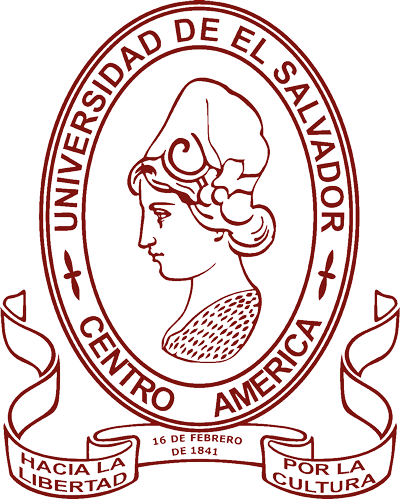
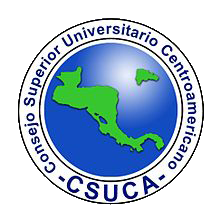
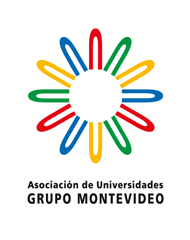
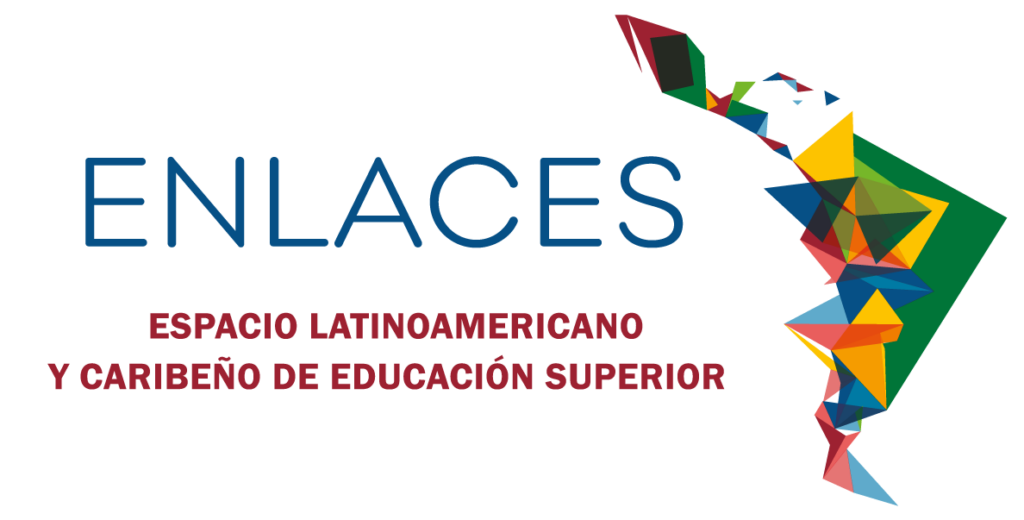
|
Collaborating entities


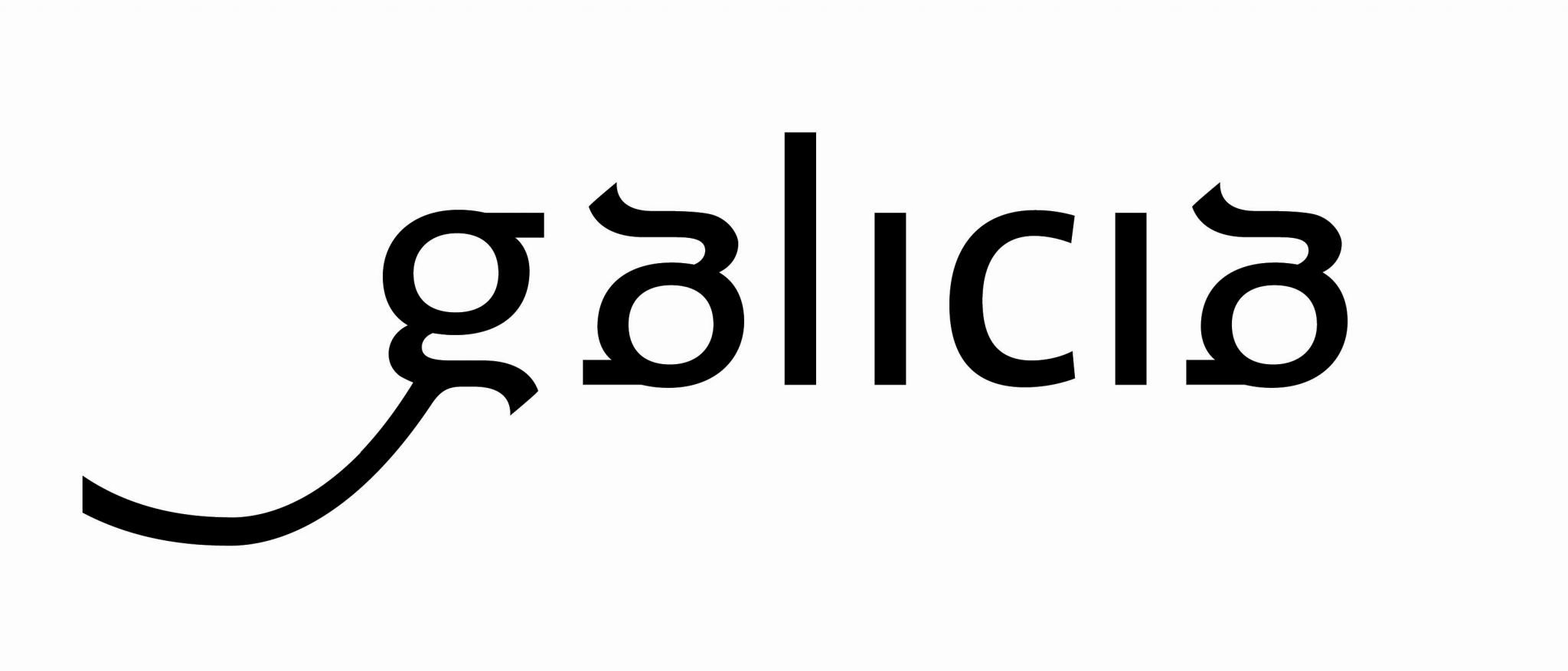

|
